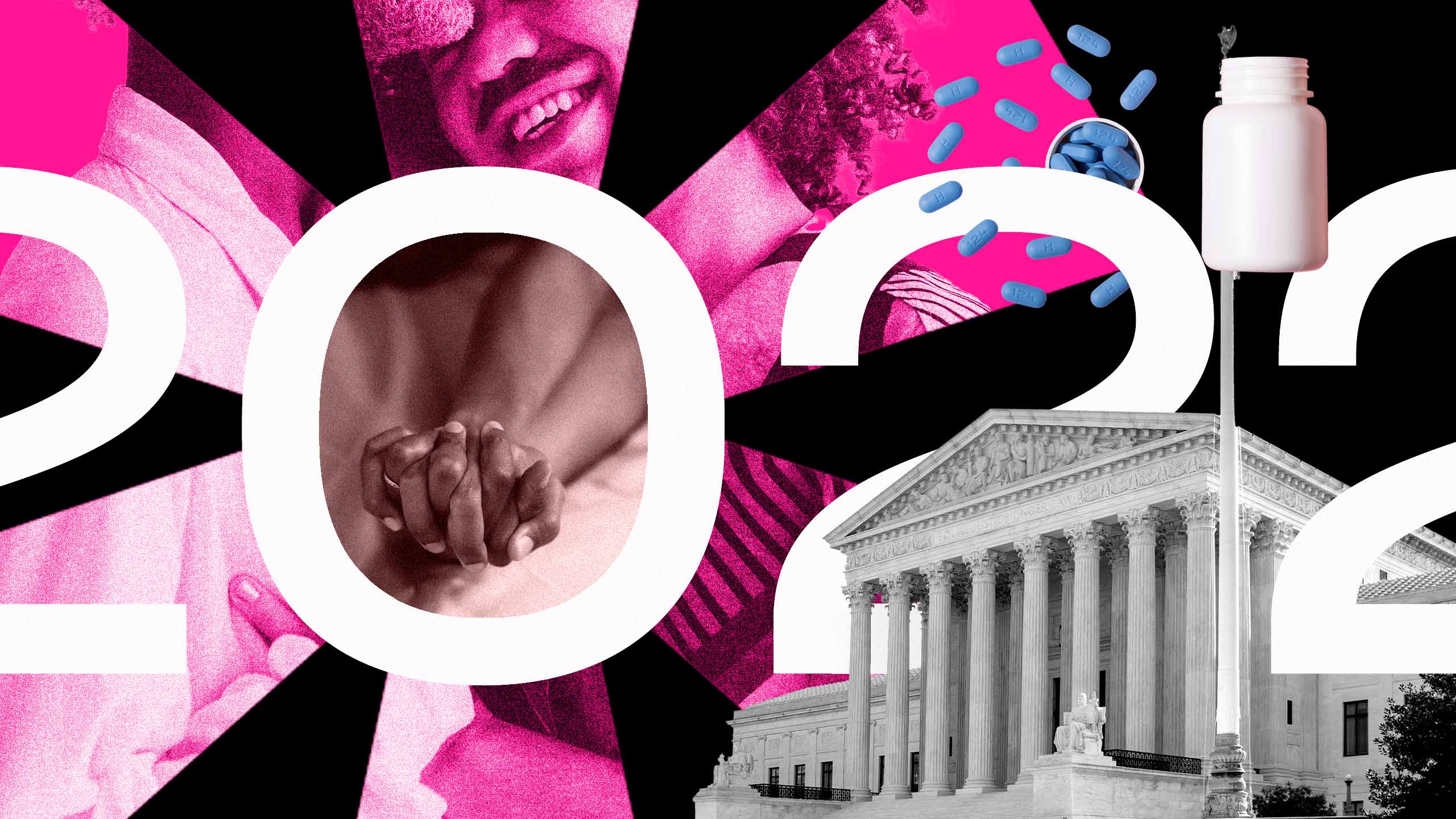I’ve always found sex fascinating—in that it’s titillating, sure, but also in that it mirrors so much of our world. Sex reflects the way we process and enact and embody so much: power, control, fear, desire, care. In 2022, the ways we loved and lusted certainly reflected each of those things. Here are some of the biggest stories that shaped yet another chaotic year.
STBBIs were on the rise … again
This year, experts in the U.S., Canada and Europe warned of a worrisome trend: the transmission of sexually transmitted and blood-borne infections (STBBIs) is ballooning.
This uptick isn’t strictly new: the rate of STBBIs in resource-rich countries has been growing steadily for years. But new infections have begun to skyrocket, as people were unable to test during the pandemic—and governments diverted resources away from sexual health in an attempt to bolster other areas of their crumbling healthcare systems.
In the U.S., for example, syphilis cases rose 26 percent last year (the rate of new infections is now the highest it’s been since 1991) and new HIV cases rose by 16 percent, prompting experts like David Harvey, executive director of the National Coalition of STD Directors, to call the situation “out of control.”
To combat spread, experts are urging governments to funnel more funding into treatment, prevention and testing—especially home testing.
Some countries have already begun to implement their own solutions: this month, France announced it would provide condoms to 18- to 25-year-olds for free in pharmacies to help curb unwanted pregnancies and STBBIs.
Porn stats revealed that some of you really like scissoring
Every December I get the distinct pleasure of combing through pages of data that tube site Pornhub releases about its users’ viewing habits. And every year, I’m fascinated by what makes everyone tick. What made a lot of viewers tick, this year, was lesbians.
Lesbian porn was the most-watched category in 2022 overall (up from second place last year), and was also the most-searched category among women specifically.
Scissoring may have a history as a controversial and frequently misunderstood sex position, but it was indisputably popular among female viewers this year: women were 155 percent more likely to look up the term than men.
Women were also big fans of gay male porn performers—in fact, 46.7 percent of gay male porn was watched by female visitors this year.
Bans on queer sex were lifted—and one was imposed
In August, Singapore made headlines when it lifted a colonial-era law that criminalized sex between men. While the the discriminatory statute had not been enforced for decades, activists celebrated the end of the law, calling the move a step forward. Still, LGBTQ+ Signaporeans have pointed out in recent months that the repeal has not changed much for them, and that the legal changes themselves do not go far enough: last month, the government clarified that the repeal would not open the door to marriage equality in the country.
Singapore was not the only region to decriminalize queer sex this year. St. Kitts and Nevis, and Antigua and Barbuba struck down discriminatory laws earlier this year, while Barbados became the most recent country to do this same earlier this month.
Unfortunately, we also saw some setbacks this year. This month, Indonesia passed a new criminal code that bans extramarital sex—paving the way for the criminalization of LGBTQ+ people in the country.
Roe v. Wade was overturned
When the U.S. Supreme Court overturned Roe v. Wade in June, the decision ended nearly 50 years of abortion protection in the country and signalled a major threat to the bodily autonomy of women and trans people across America.
With states left to set their own laws, abortion access across the U.S. has become increasingly spotty. By December, most abortions had been banned in at least 13 states, while only 15 states have elected not to impose any restrictions at all.
While queer and trans people are likely to be among those most negatively affected by these new laws, they are also poised to be leaders in the continued fight for equal healthcare access. As columnist Jude Ellison S. Doyle wrote earlier this year, “The ‘right’ to abortion has never been equally distributed in America: poor people, Black and brown people, and queer and trans people, have always struggled to access the care supposedly guaranteed to them by the Supreme Court’s earlier decision. Reproductive justice leaders from those communities are already prepared for a post-Roe universe, and it is their expertise we need to heed now.”
A New York eviction court supported polyamorous unions
This year, New Yorker Markyus O’Neill found himself in court after his landlord tried to evict him from the rent-controlled apartment where he’d lived with his partner, Scott Anderson.
Anderson had held the lease, but died in 2021. When the lease came up for renewal after Anderson’s death, O’Neill wanted to renew it himself. The landlord argued that he couldn’t, however—since Anderson had been married to another man, Robert Romano, who lived at another address, the landlord argued, O’Neill couldn’t claim he had a “familial relationship” with Anderson.
While the court has not yet decided whether O’Neill has the right to stay, New York Civil Court judge Karen May Bacdayan concluded that O’Neill did have the right to have a full hearing into his claim. The next step will be hearing that examines whether the three men were in a polyamorous relationship—and if the ruling recognizes O’Neill and Anderson as partners, the former may win the right to stay in his home.
Science confirmed what we already knew: marriage is better when you’re queer
Married life can be stressful. Whether it’s financial tension, a difference in communication styles or just a persistent disagreement over exactly how often the floors need to be scrubbed, all long-term partnerships experience some degree of conflict or strain. The difference between straight and same-sex couples according to the latest science? Queers are just better at weathering relationship pressure together.
After surveying more than 400 married couples about how they coped with stress together, researchers found that same-sex couples were more positive and collaborative in their approach to dealing with tension than their straight counterparts. Researchers suspect this might be because gender-related differences affect how people relate to stress. At the same time, shared experiences can help people better cope with pressure together—so queer people who have experienced similar minority stress might have a better shot at navigating rough terrain collaboratively.
Straight people may have been obsessively gatekeeping matrimony for eons, but it’s the gays who are perfecting the art of marriage.


 Why you can trust Xtra
Why you can trust Xtra


